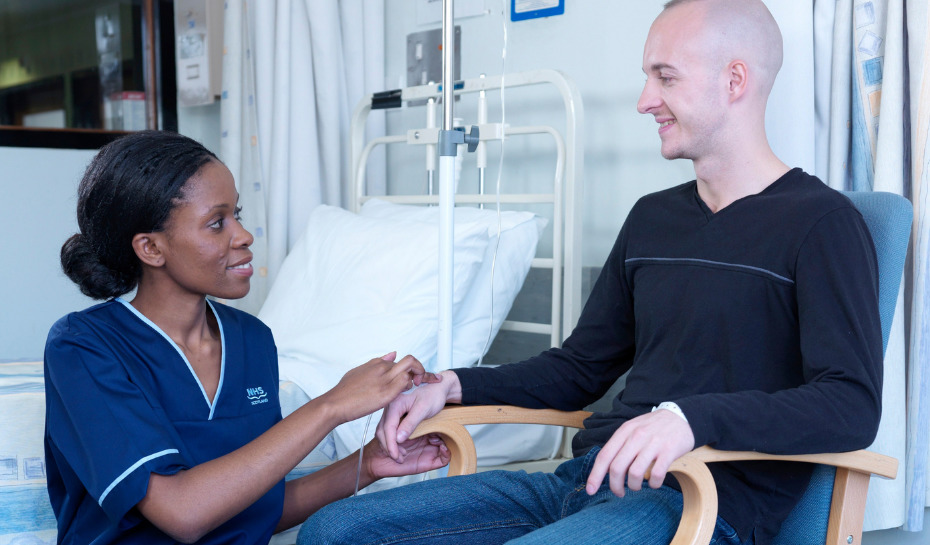18 May 2022
Supporting Patients With Cancer During COVID-19
Tagged by
Since the emergence of COVID-19, patients with cancer have experienced significant changes to cancer care and treatment. Many uncertainties exist around exactly how COVID-19 affects patients with cancer and those on cancer treatment.
NHS Lothian Charity has a vital role to play in supporting clinical research which improves both patient experience as well as patient outcomes. We were, therefore, proud to be able to provide funding to aid the two studies below to help support patients with cancer during this global pandemic:
SCCAMP study
The Scottish COVID CAncer iMmunity Prevalnce study (SCCAMP) seeks to better understand the number of patients with cancer who have had COVID-19, and how factors such as their cancer or treatment type might affect their immune response.
This study takes blood samples from consenting patients who are attending the NHS for routine treatment for cancer in Scotland regularly over a 1 year period. Blood samples are then tested for markers of immune response, including COVID-19 antibody levels.
The results will be used to inform NHS service planning during COVID recovery and aid in the shared decision making process between patients and professionals who are facing difficult choices between treatment options during the uncertain risks posed by the pandemic.
This study is in partnership with University of Edinburgh.
PROMs study
The COVID-19 pandemic forced the clinical care of cancer patients to rely heavily on remote consultation to avoid any potential infection risk posed by in-hospital care. Cancer patients undergo multiple complex treatments such as surgery, chemotherapy and radiotherapy. Careful monitoring for side effects and their management by specialist teams is essential for good quality care.
In response to the pandemic, NHS Lothian Cancer Services have piloted the use of digital remote monitoring solutions that allow patients to record side-effects and symptoms on a website or smartphone. Clinical teams can then view these “patient reported outcome measures” (PROMs) and monitor them to enable pro-active remote care to improve quality of life, avoid hospital admissions and refine care models.
Through the pilot projects, Cancer Services have identified 5 clinical teams who would like to continue using remote digital PROMs monitoring, having found it helpful for their patients and having demonstrated the potential to improve clinical outcomes and patient wellbeing. The team has developed care models that make use of digital PROMs as a direct response to the COVID-19 pandemic that enables enhanced remote care in a safe manner.
Thanks to our supporters, we were able to fund the continued use of PROMs over the following 12 months at the Western General Hospital and St John’s Hospital and give the team enough experience to form the basis of an options appraisal and formal business case to NHS Lothian for ongoing use within the service.
“We are incredibly grateful to NHS Lothian Charity for making this onward work possible – it wouldn’t be possible without it! Thank you very much for your support.”
Dr Karin Purshouse ECAT
Clinical Lecturer Medical Oncology
